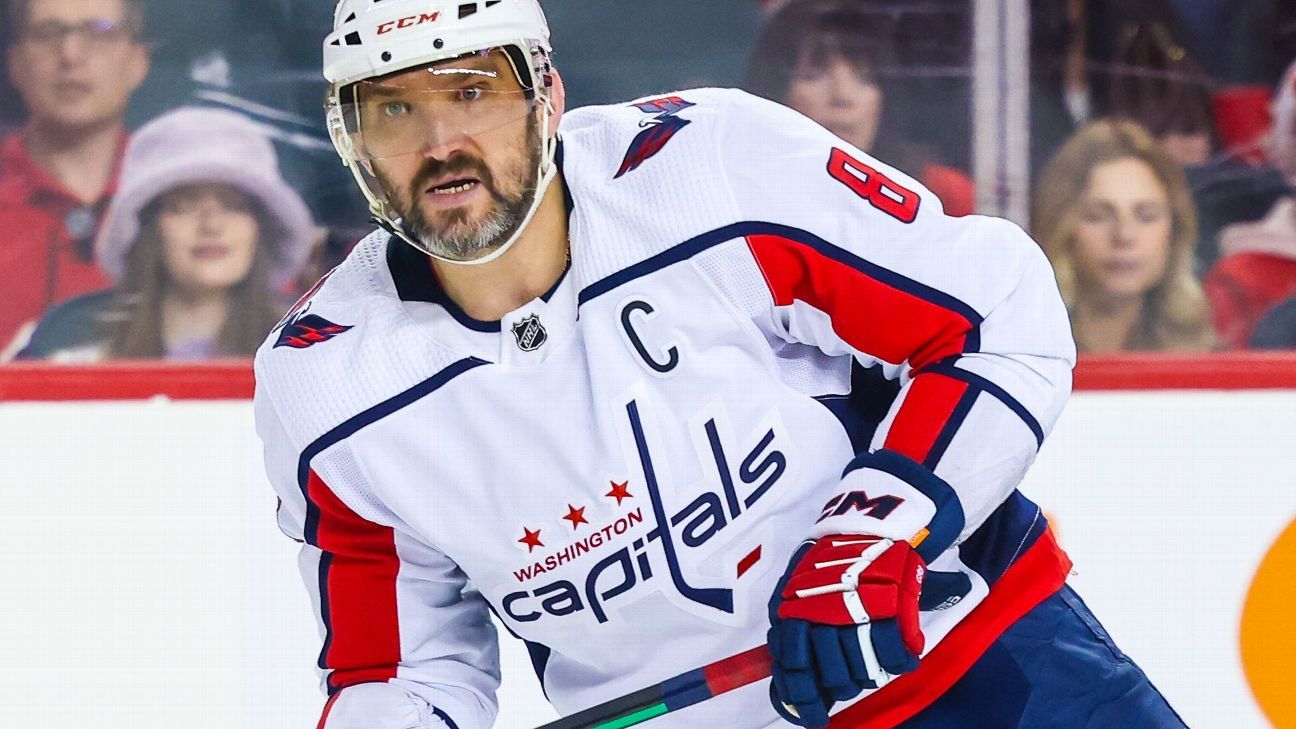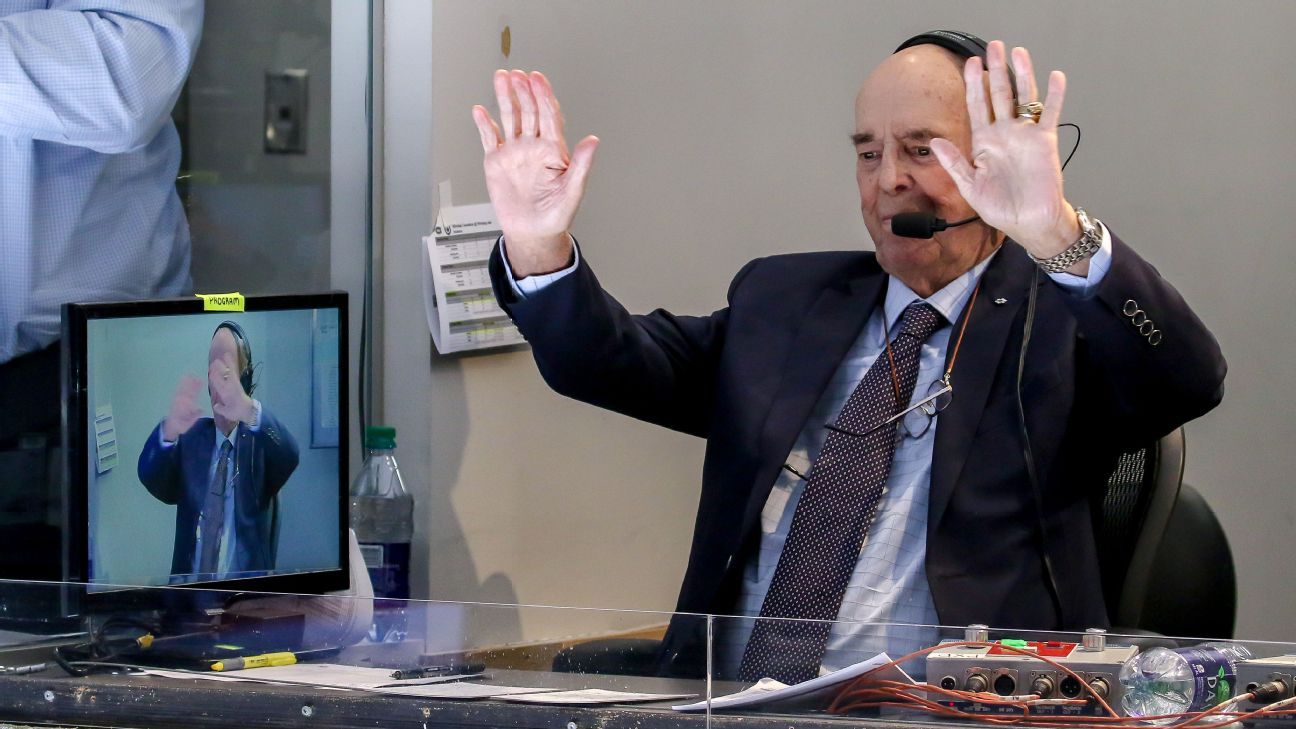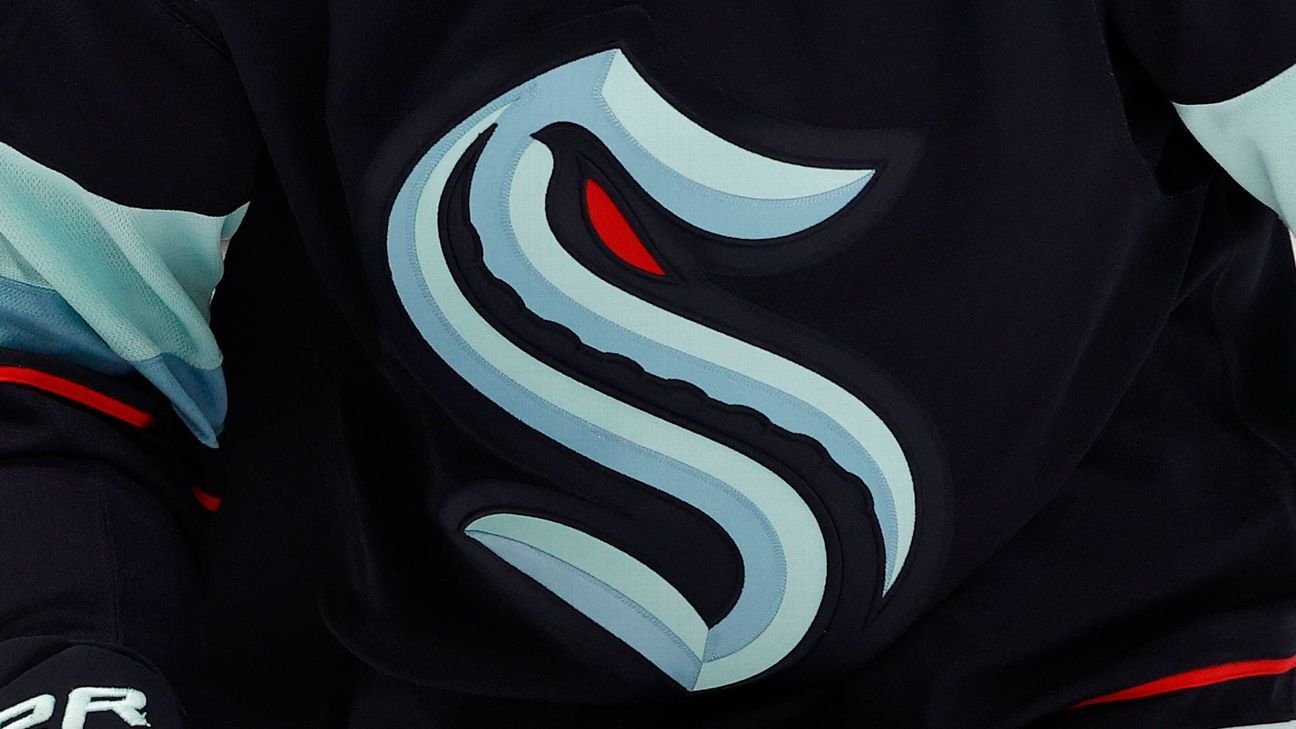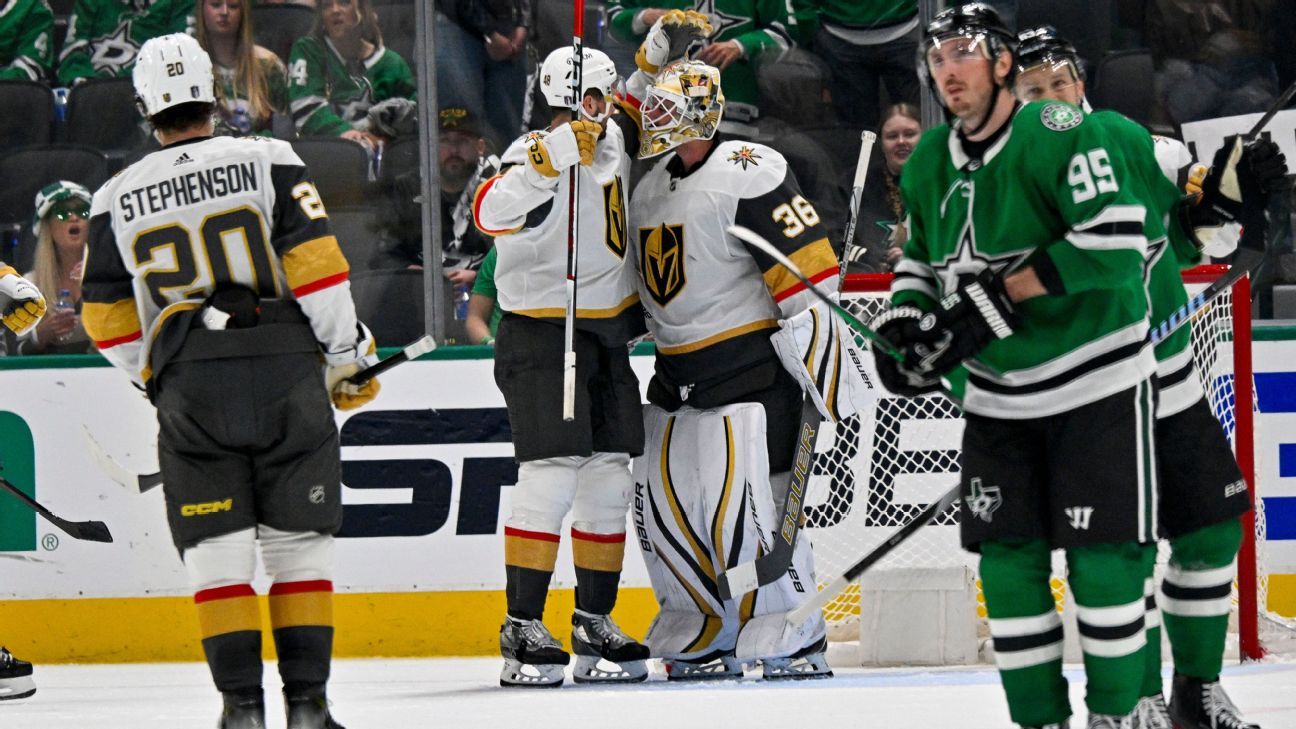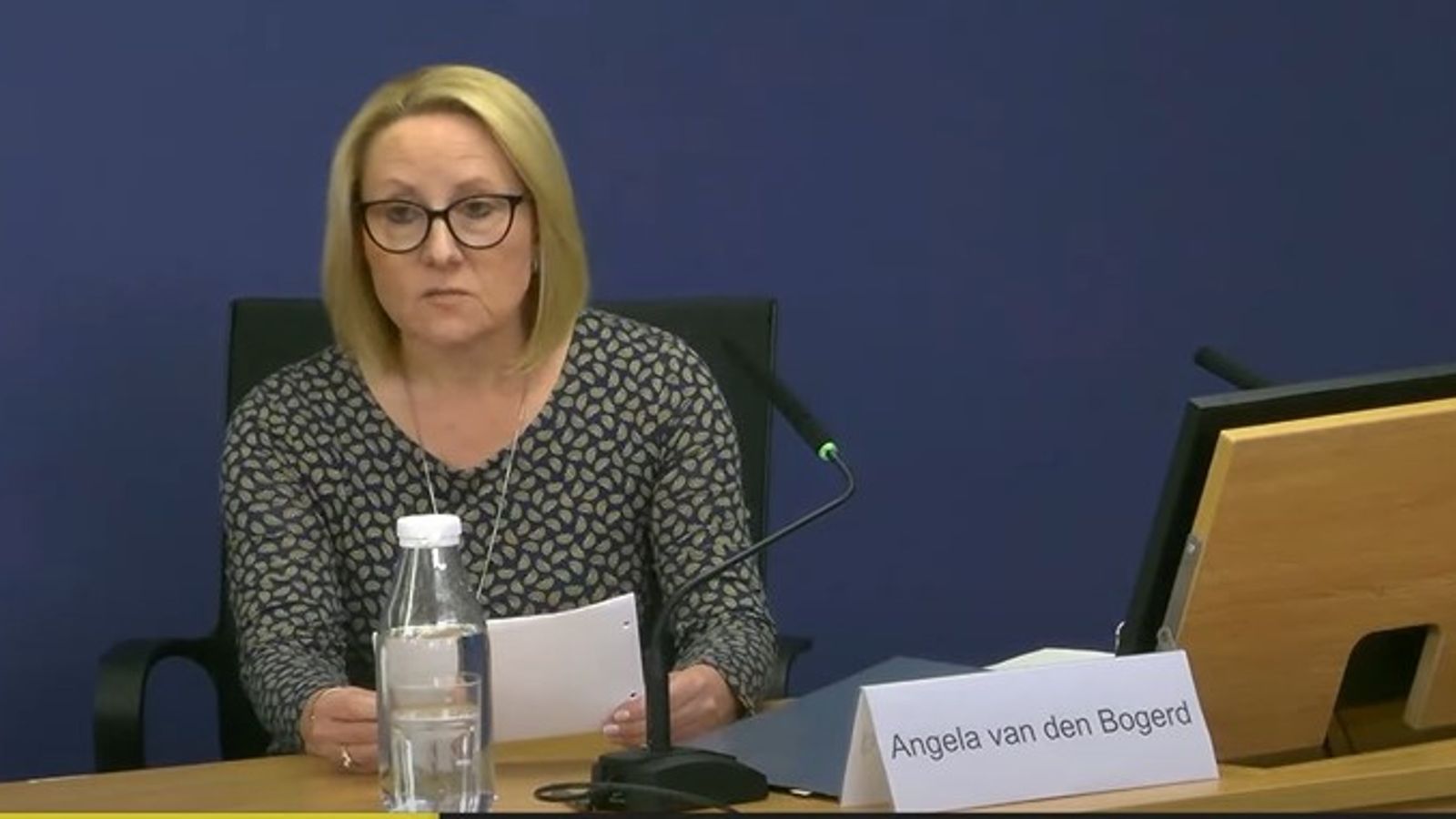The 2021 NHL trade deadline was like no other, from the current economic landscape to immigration and quarantine challenges to the non-traditional format for the season. There were just 17 trades involving 26 players on trade deadline day, but some teams did significantly better than others.
Here are our winners and losers for the trade deadline. Full team-by-team report cards will arrive on Friday.
More coverage:
Grades for every big trade
Trade tracker

Wyshynski: Taylor Hall has wanted to play for the Boston Bruins for years. He flirted with them as a free agent last summer, but the sides couldn’t make a contract work. So he signed a one-year, $8 million contract with the Buffalo Sabres to hang with Jack Eichel and maybe end up with the long-term extension that he’s sought.
It turned out to be disastrous on the ice, as Buffalo was a hot mess and Hall had just two goals in 37 games. Buffalo decided to trade him at the deadline, but Hall controlled his fate courtesy of the full no-movement clause that Sabres GM Kevyn Adams handed him this offseason. When Boston entered the derby for his services, the competition was over.
“Definitely, the no-move really helped me become a Bruin,” Hall said on Monday.
So Taylor Hall got an $8 million salary from a contract with the Sabres and still ended up in Boston for a playoff run, with a chance to audition for a long-term deal with the Bruins. It’s good to see Taylor Hall get a little lucky in something other than his team’s draft lottery. (Boston Bruins, please don’t turn that last statement into the ultimate irony by season’s end.)
Loser: Buffalo Sabres
Kaplan: Everything about 2021 has been brutal for Buffalo. The Sabres endured an 18-game winless streak, the longest of the salary cap era. They fired yet another coach, Ralph Krueger, and captain Jack Eichel has remained sidelined with injury. The Sabres’ offseason acquisitions of Hall and Eric Staal generated decent optimism, and let’s just say that excitement evaporated fast.
With Hall, Staal and Brandon Montour all on expiring contracts, the Sabres were hoping to leverage those players for future draft picks and prospects. They did, but the return leaves a lot to be desired: a second-round pick, two third round picks, a fifth-round pick and Anders Bjork (39 points in 138 career NHL games), despite retaining a ton of salary.
Goalie Linus Ullmark stuck around with the hopes the sides can reach an extension, but there’s also a chance the 27-year-old can just walk as an unrestricted free agent this summer. This isn’t all on rookie GM Kevyn Adams, who got a tough assignment in his first year on the job. Though he held out and asked for a first-round pick for Hall, sources tell ESPN no team was willing to offer one. And with Hall holding a no-movement clause — therefore having some control over his destiny — the Sabres had to take what they could get.
3:41
Greg Wyshynski defends Buffalo Sabres GM Kevyn Adams for what he got from Boston in the Taylor Hall trade.
Winner: East Division
Kaplan: I thought the race atop the Central Division was going to get heated, with the Hurricanes, Panthers and Lightning all jockeying for position. What went down in the East Division is far more fascinating.
All four teams atop the East made massive moves, giving that race extra juice down the stretch. The Islanders kicked things off by acquiring Kyle Palmieri and Travis Zajac from the Devils — two players to help fill the void of captain Anders Lee, who is out with a blown ACL, and who both seem to fit the Islanders culture seamlessly. The Penguins grabbed Jeff Carter from Los Angeles, a wise move for a team that’s been decimated by injuries at the center position. The Bruins picked up a nice depth defenseman in Mike Reilly then landed forwards Curtis Lazar and Hall — without having to surrender a first-round pick for the latter.
Then the Capitals had to keep up with the Joneses, of course, landing Michael Raffl for the bottom six then making the biggest move of all on Monday: Acquiring 26-year-old Anthony Mantha from the Red Wings, trading away Jakub Vrana, Richard Panik, a 2021 first-round pick and 2022 second-round pick in return.
The East is filled with plenty of intrigue over the next month, especially knowing the first two playoff rounds will be intradivisional. And did we mention that of the Bruins’ remaining 17 games, six of them are against Hall and Lazar’s old team, the Sabres? All of those will be must-watch games.
Loser: West Division
Wyshynski: It’s such a stereotypical East vs. West dynamic, as one division was high-strung and aggressive while the other division was all “like, what deadline, maaaaan?”
The Avalanche and Golden Knights are in a Kong vs. Godzilla march to a playoff showdown, but neither team escalated their arsenal with a blockbuster deadline move. Colorado added goalie insurance in Devan Dubnyk and reunited with center Carl Soderberg. The Golden Knights made a nice deal for the versatile Mattias Janmark, but this was a bit of a comedown after previous deadline scores like Robin Lehner and Mark Stone. The Wild wouldn’t part with a first-round pick in order to upgrade. The Coyotes and Blues stood pat, while the Kings sent Jeff Carter back East.
Meanwhile, who are the Ducks, exactly? The team traded Ben Hutton to the Leafs for fifth-rounder and acquired defenseman Haydn Fleury from the Hurricanes … and that was it. The Ducks should be aggressively transitioning their roster towards a youth movement. Instead, they held onto all of their veteran assets, from Josh Manson to Rickard Rakell. GM Bob Murray could have traded captain Ryan Getzlaf, too, if there was a “significant enough return” to help the team. There was not. The sooner the Ducks realize the reality of their surroundings (i.e. the division basement), the quicker they can start to turn things around.
Kaplan: If there’s one thing to know about Columbus GM Jarmo Kekalainen, it’s that he always acts with conviction. The Blue Jackets have four straight playoff berths, and kept overachieving despite losing big names in free agency. But in 2021, they fell back to Earth. Only the Red Wings have fewer points in the Central Division. Instead of dwelling on a season lost, Kekalainen got to work.
Despite speculation that “rental players” wouldn’t yield a big return in 2021, Kekalainen snagged two first-round picks for players on expiring contracts, Nick Foligno and David Savard. What’s more, the GM handled the situation with his captain, Foligno, with class and transparency; I wouldn’t rule out a reunion this summer.
The other thing about Kekalainen: he rarely panics, he just adapts. “We wouldn’t call [this season] a step back,” Kekalainen said. “We can do the reload and decide the pace of it with the moves we make in the offseason and we’ll be better for it.”
Wyshynski: The Jets have one of the NHL’s deepest collection of forwards, with Mark Scheifele, Nikolaj Ehlers, Kyle Connor, Blake Wheeler, Pierre-Luc Dubois and others. They have one of the top two goalies in the NHL in Connor Hellebuyck.
They do not have a defense corps that is on par with either of those two other parts of their lineup, and … they added Jordie Benn for a sixth-round pick.
Yes, they’re likely going to have promising Ville Heinola on their blue line shortly. But this team needed one more impact defenseman, and GM Kevin Cheveldayoff couldn’t pry one loose.
“We looked at a few other things. We tried to do a few other things today that might have been big swings, but the players that we targeted didn’t move,” he said.
That’s too bad. This team was one or two pieces away from being a serious contender to come out of the North Division.
Winner: Florida Panthers
Wyshynski: I’ll admit I underestimated the Panthers’ trade for Brandon Montour. But after seeing the return for David Savard, bringing in Montour for a third-rounder was a bargain.
That was one of a couple of interesting moves for GM Bill Zito at the deadline. He traded a 2022 second-rounder and prospect Emil Heineman for Flames center Sam Bennett, who wanted a change in scenery and will be playing for a restricted free agent contract. His playoff production can’t be ignored, either.
They also added some additional skill in free agent Nikita Gusev who was released by the Devils. (Stick-tap to the Chicago Blackhawks for helping the Panthers make the money work in a pair of salary-dumping trades.) We’re still not sure how far Florida will get without Aaron Ekblad, but these moves combined with their keeping goale Chris Driedger around is a signal to the players that the organization is serious about this playoff push.
Loser: Cap flexibility
Kaplan: The NHL’s salary cap remains at $81.5 million, and life in a flat-cap world just doesn’t jibe with a lot of GMs. (The salary cap has risen every year since the last lockout, one of many reasons the pandemic and economic losses over the last 13 months have jolted even the best-laid plans). As many league folks predicted, the phrase “retained salary” had everyone buzzing on Monday. Beginning with the Eric Staal trade on March 26, 11 trades have included some retention of salary.
Talked to a handful of NHL people about the trade deadline today. Common refrain: “Nobody wants to take on money right now.”
Sounds like “retained salary” is going to be hockey’s most-used phrase on April 12
— Emily Kaplan (@emilymkaplan) March 31, 2021
Teams with flexibility — looking at you, Detroit and San Jose — were able to weaponize their space, essentially buying themselves draft picks by inserting themselves in deals as “brokers.” Teams in a pinch — Tampa Bay and Vegas among them — entered the week with virtually no cap space, but somehow finagled a way to make moves anyway.
In a few weeks, the Stanley Cup playoffs will begin, and the salary cap will essentially go away. It’s a loophole that will allow Nikita Kucherov to join the already stacked Tampa Bay Lightning, who have $0 in projected cap space and still must figure out what to do when other players come off long-term injured reserve before the end of the regular season.
While we admire the creativity on display, that lack of cap space surely drove down the volume of deals.
Wyshynski: The Maple Leafs haven’t won a playoff series since 2004. The knock on them has been that don’t defend or do the “little things” well enough to win in the postseason. Nick Foligno does both, which is why many teams other than the Leafs were in the market for the pending unrestricted free agent’s services.
Toronto traded away a premium package including a first-round pick, but so what? GM Kyle Dubas has been meticulously crafting this roster with veteran character players for the last year, and Foligno feels like a “last piece” guy.
I also liked David Rittich as goalie insurance for Jack Campbell and Frederik Andersen, Riley Nash as a depth defensive center and Ben Hutton as another defenseman in the mix. A Stanley Cup contender just got better, and Dubas sent an emphatic message to his players and their fans that this is the year to go for it.
Loser: Chaos
Kaplan: A few weeks ago we all thought the Predators were poised to be the biggest movers of the trade deadline. They were listening to everything, including deals for star forward Filip Forsberg and one of their top defensemen, Mattias Ekholm. Over the last month, only the Avalanche have picked up more points than the Predators, and that prevented Nashville from doing anything — except taking a flier on Erik Gudbranson for a seventh-round pick.
Teams were interested in Philly’s Scott Laughton, but the versatile forward worked out an extension with the Flyers (five years, $15 million). Ditto for Alex Iafallo and the Kings (four years, $16 million). Linus Ullmark wasn’t traded from the Sabres, in hopes both sides can work out an extension before this summer. Heck, there was barely any goalie movement, outside of veteran Devan Dubnyk landing with Colorado and David Rittich being sent to Toronto.
“Just wait for the draft,” one agent told me Monday afternoon. “That’s when the fireworks will happen.”
So while today might have been a little sleepier than other recent deadline days, perhaps we’ll get our frenzy this summer.

